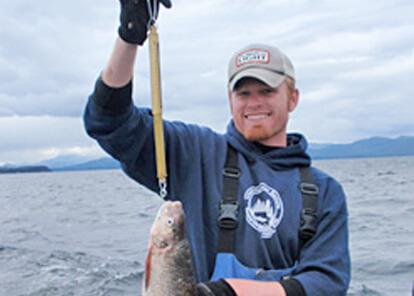Seth Herbst, a master’s student concentrating in Aquatic Ecology and Watershed Science, is focusing his thesis research on lake whitefish, a relatively unknown but historic fish species in Lake Champlain. He started at UVM with advisor Ellen Marsden in the spring of 2009, after earning his B.S. in Fisheries and Watershed Science and Biology from the University of Wisconsin-Stevens Point. Following graduation, he gained professional experience working as a fisheries technician with the Minnesota and Wisconsin Departments of Natural Resources Fisheries Division.
"The main focus of my research is to determine whether the invasion of the zebra mussel has negatively impacted the growth and condition of lake whitefish in Lake Champlain," Seth explains. "Zebra mussels have the potential to impact the historic prey sources of the native lake whitefish. Similar invasions of zebra mussels in many of the Great Lakes were thought to have caused the population crash of whitefish prey."
To determine whether similar changes have occurred in Lake Champlain, Seth is studying the seasonal diet, and the size and age structure, growth, condition, energy density, and fecundity of lake whitefish. His preliminary results indicate that zebra mussels have had minimal impacts on lake whitefish in Lake Champlain. He has observed that the population seems to be relatively stable with the majority of fish being in good condition, with a wide range of age classes, and showing evidence of reproduction throughout most of the main basin of Lake Champlain.
